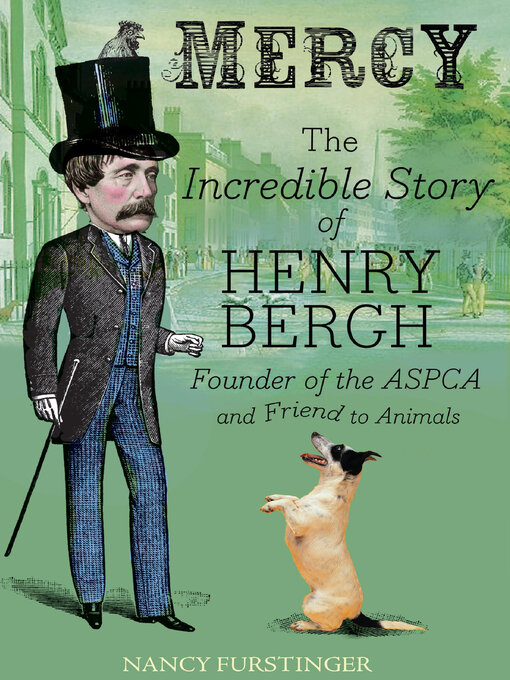19th century animal rights pioneer Henry Bergh comes to life in this illustrated biography for young readers.
Henry Bergh didn’t seem like the kind of man who would speak up for animals. He’d never even had a pet before. But after witnessing horrific animal cruelty in the streets of New York and attending a bullfight in Spain, Bergh knew animals needed a champion to protect them. In the 1860s, Henry Bergh started the ASPCA and advocated for many animal cruelty prevention laws. Bergh worked hard to protect animals across the country, insisting that “mercy to animals means mercy to mankind.”
- Available now
- New eBook additions
- Most popular
- Try something different
- Popular Graphic Novels
- Popular Cookbooks
- Manga Series Starters
- Celebrate Disability Pride Month!
- See all ebooks collections
- Available now
- New audiobook additions
- Try something different
- Most popular
- Language Learning
- The Great Courses
- Celebrate Disability Pride Month!
- See all audiobooks collections
- Most Popular
- News & Politics
- Cooking & Food
- Celebrity
- Home & Garden
- Entertainment
- Health & Fitness
- Fashion
- Hobbies & Crafts
- Tech & Gaming
- Cars & Motorcycles
- Family & Parenting
- Sports
- See all magazines collections




